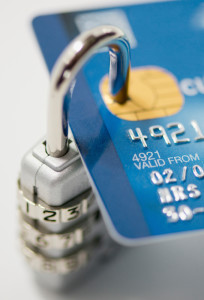 My daughter and I just got back from a 1,300-plus mile road trip so I could attend a business conference in Phoenix. Along the way we checked out Joshua Tree, Prescott, the Grand Canyon, Sedona, Montezuma’s Castle and the Tuzigoot National Monument. The trip back included stops at the Salton Sea and the amazing Living Desert zoo and botanical gardens near Palm Springs.
My daughter and I just got back from a 1,300-plus mile road trip so I could attend a business conference in Phoenix. Along the way we checked out Joshua Tree, Prescott, the Grand Canyon, Sedona, Montezuma’s Castle and the Tuzigoot National Monument. The trip back included stops at the Salton Sea and the amazing Living Desert zoo and botanical gardens near Palm Springs.
Her dad and I took several road trips before she was born, exploring the West and Southwest. They were among our most memorable (and cheap) vacations.
I was pleased to find road trips can still be a frugal way to travel. Our motel rooms typically cost less than $100 a night; even at the Grand Canyon’s comfortable Yavapai Lodge, we paid just $140 to sleep in two queen beds not far from the South Rim. Meals were rarely more than $20 for the two of us, and we spent less than $150 on gas thanks to my 36-mpg-plus Chevy Volt.
So here are my best tips for a memorable road trip that won’t cost a fortune:
Bring the right supplies. Snacks, breakfast makings and a cooler can save you a lot of money on the road. I bring oatmeal (which you can make in a mug, adding water heated by the motel coffee maker), peanut butter for the kiddo, fruit, milk and crackers.
Spring beats summer. At least in the West, the crowds tend to be thinner and the weather less scorching. Since schools schedule their spring breaks at different times, you’re not traveling at the same time as every other family in the freakin’ universe.
Use Yelp. Or TripAdvisor. I found good, affordable places to stay and eat thanks to user reviews. The best find was The Views Inn in Sedona, a clean, comfortable spot with a nice breakfast and an eager-to-please manager. Being willing to stay on the outskirts of town rather than in the center can save you $100 or more a night (or $200, when it comes to Palm Springs in high season).
Ask the locals. Yelp is also good for finding great cheap eats, but asking locals for their recommendations is a great way to start a conversation.
Give the kid a camera. We figured out years ago that our daughter stays much more engaged when she can capture what she’s seeing. Yes, she winds up with 16 pictures of lizards scuttling through the desert, but so what? I have many, many more of her grinning in front of various national monuments.
Catch the ranger talks. I didn’t think “Men, Mules & Mining” at the Grand Canyon would be particularly riveting, but I was so wrong. The stories and accompanying slides were fascinating. So was the geology talk the next day at the Yavapai Museum of Geology. Most of the rangers we encountered were good story-tellers and great about keeping kids engaged.
Set limits on your driving time. When our daughter was an infant or a toddler, driving four hours a day was a lot. Now she can tolerate more, but I found myself pretty weary at the end of an 8-hour travel day. Which may explain why I blearily clipped a dead elk some other unfortunate driver had previously killed on the road to the Grand Canyon. No damage to us or the car; wish I could say the same for the poor elk. In any case, next time I’ll probably limit drives to four hours, tops.
Download an audio book. There are only so many rounds of 20 Questions an adult can, or should, play. Fortunately, we had the third book in the Hunger Games trilogy to keep our minds occupied for much of the trip home. Your local library has tons of audio books you can borrow (in CD version or via digital downloads).
Bring emergency supplies and tools. We never needed the water or trail mix I always pack in the trunk, but I always feel better knowing they’re there.




